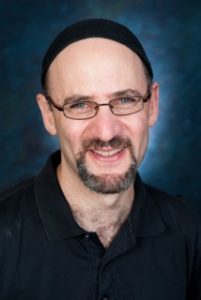
By Rabbi Nathan Martin
Parshat Vayigash
This week’s parshah brings the Joseph saga to its dramatic resolution.
Judah pleads with Joseph to imprison himself rather than his brother Benjamin, whom he had pledged to bring home safely from Egypt (See Genesis 44).
Something about Judah’s behavior breaks open Joseph’s heart leading Joseph, in an act of cathartic healing, to cry and wail and then reveal his true identity to his brothers.
This compact section of our story speaks volumes about the human potential for growth and transformation. Judah takes full responsibility for his pledge of keeping his brother safe, and Joseph is able to move away from a path of revenge toward one of compassion.
In a careful reading of the first three words of this portion, “and Judah approached,” the midrash suggests that Judah’s approach had different possible motivations: “ ‘And Judah approached’ R. Yehuda said it was an approach to war … R. Nehemia says it was an approach to compromise … and the rabbis said it was an approach to prayer (Genesis Rabbah 93,6).”
I find this midrashic read a helpful perspective for us today. These past six years have been a particularly politically conflictual period in our country’s history. The growth of hate speech and the siloing of online conversations among those who share similar beliefs and perspectives has led to a lack of tolerance and understanding across the political spectrum.
This political deadlock and conflict echo the first stance of Yehuda’s understood approach articulated by R. Yehuda — one in which we engage a situation and expect conflict. While this approach can be instrumental in the struggle for change, it is not particularly transformational.
Judah’s second approach towards compromise, put forth by R. Nehemia, is more of a movement towards the art of the possible; it suggests the idea of not having to surrender one’s core values but allowing a certain flexibility in service of a greater goal. In times of political deadlock, finding paths forward that help us to put aside core differences toward the greater good are important ways of cultivating a greater sense of common purpose with each other.
But I find the most intriguing teaching of the midrash to be the position of the rabbis who said that Judah’s approach was an approach to prayer. At first, this seems misplaced; is the middle of a power struggle between the brothers a time for prayer?
My local colleague and teacher, Reconstructionist Rabbi Jacob Staub, when writing about prayer, does not see prayer as a petition to a higher power but rather as a path that “allows us to center our focus, to look inward, to be elevated beyond our individual concerns,” where ultimately “the answer to our prayers comes not from a supernatural God but from our own transformed hearts.”
What if this is the action Judah was engaged with? What if Judah, underneath his words, was praying for his own repair, in the form of: “I don’t have all the answers for why this conflict is happening, but please give me wisdom, patience, and an open mind and heart to see a path forward.”
And what if he was praying for Joseph’s healing as well, in the form of: “I can see how distressed and angry this person is standing before me. May the suffering he is experiencing to cause him to lash out be eased.”
I am sure that you can expand upon Judah’s inner prayer as well.
It is this third approach that seems to be the one that leads to the most transformation.
As we continue to face challenges in our lives, perhaps it is the call of the rabbis in our midrash that offers the promise of growth. Judah’s approach is perhaps modeling for us the question of how can we cultivate a spiritual awareness in our lives that centers openness, humility and a call for compassion, even if the face of irrational behavior. This may not always be possible — sometimes, change needs to be fought for — but this approach could ultimately lead to deeper transformation.
May we be inspired and find ways to emulate Judah’s prayerful approach to conflict in the year ahead, and transform ourselves and each other.
Nathan Martin serves as the associate rabbi at Congregation Beth Israel of Media and is also the board chair of Pennsylvania Interfaith Power and Light, an organization dedicated to mobilizing people of faith to take bold and just action on climate change. The Board of Rabbis of Greater Philadelphia is proud to provide diverse perspectives on Torah commentary for the Jewish Exponent. The opinions expressed in this column are the author’s own and do not reflect the view of the Board of Rabbis.



